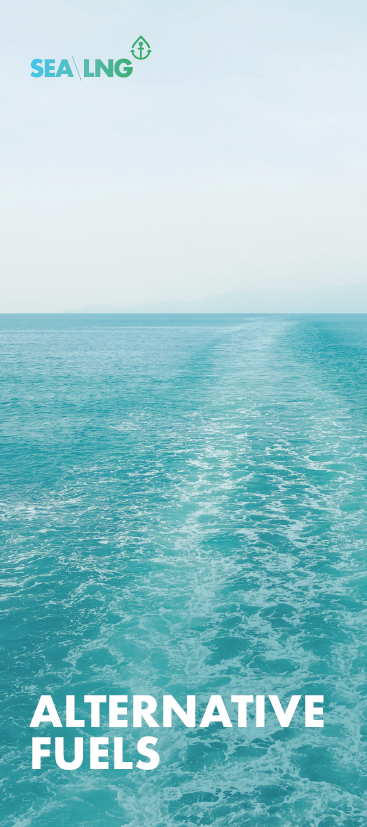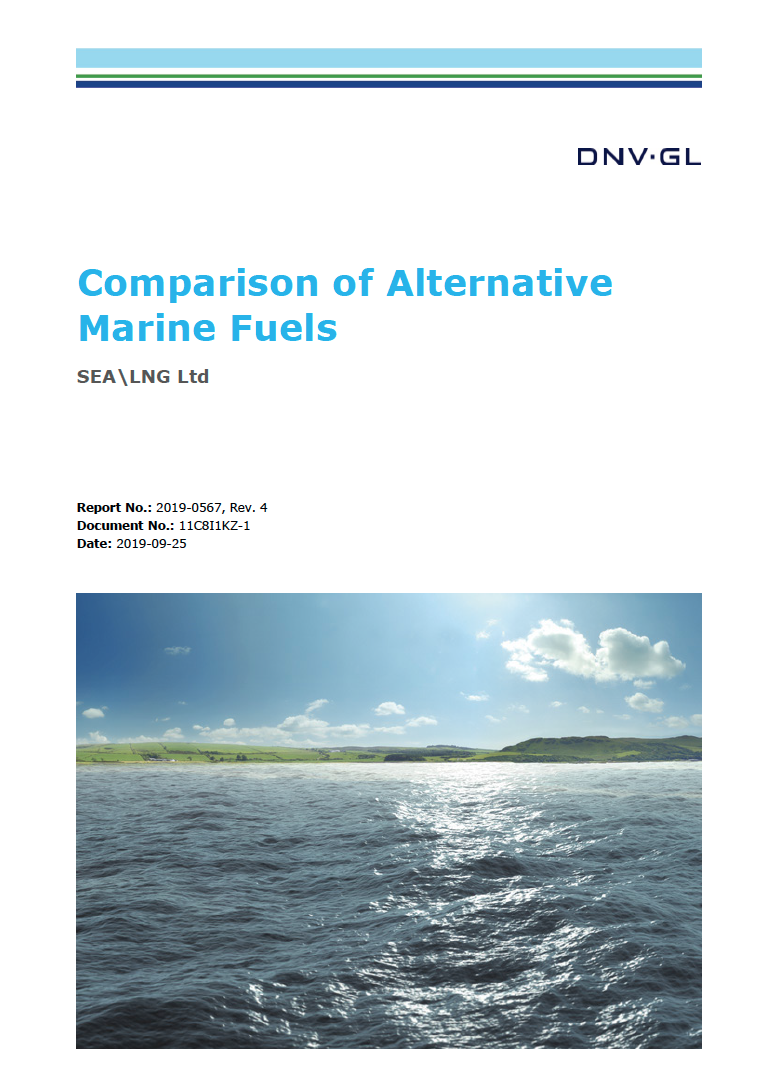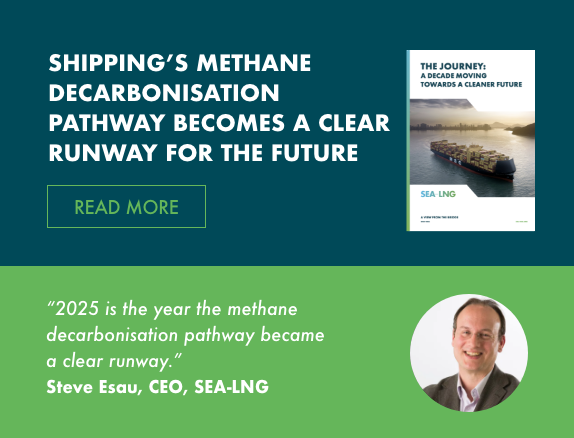Environmental regulations controlling emissions of SOx, NOx and Greenhouse Gases (GHG) are transforming the global shipping industry. Carbon-intensive, polluting heavy fuel oil (HFO) can no longer remain the default option for ocean voyages.
To comply with the International Maritime Organization’s (IMO) 1st January 2020 SOx regulations and announced future environmental targets, ship owners and operators must change the ways in which they power and fuel their fleets. Choosing which marine fuel to adopt is now a significant investment decision to be made amidst a range of uncertainties.
To support the industry in its decision-making process, SEA-LNG commissioned DNV GL to conduct a comprehensive study to assess the commercial and operational viability of alternative marine fuels. Based on existing academic and industry literature, the study evaluates how well six of the main alternative fuels (hydrogen, ammonia, methanol, LPG, biofuel, specifically Hydrotreated Vegetable Oil, and full battery-electric systems), perform compared to LNG and legacy HFO.
The study finds that LNG is the most mature, scalable, and commercially viable alternative fuel currently available for the maritime industry.
Click here to read our summary of the key study findings

Click here to download the full report

